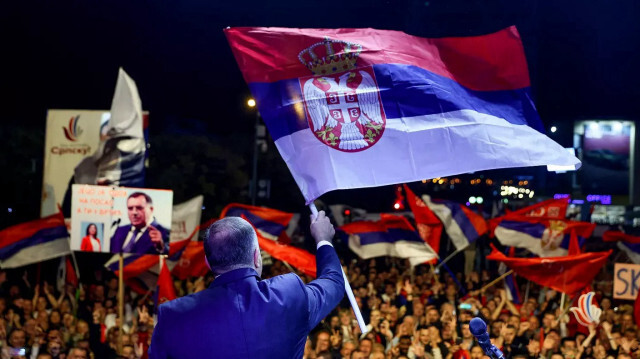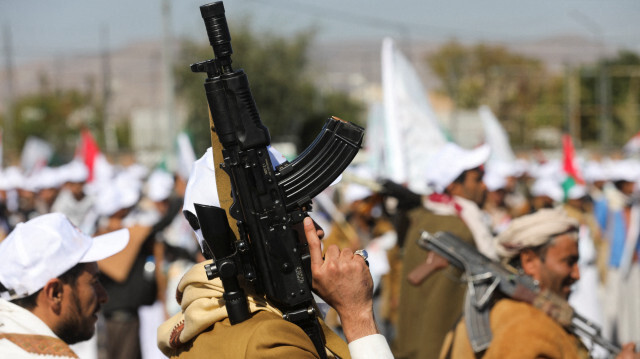Tensions Rise Over Proposed UN Resolution on Srebrenica Genocide Recognition
As a contested UN resolution on the Srebrenica genocide stirs controversy, Bosnian Serb leaders rally against what they see as an affront to their people.
Published April 23, 2024 - 00:04am

Image recovered from yenisafak.com
Debates have surged in the international community and within Bosnia and Herzegovina over a United Nations draft resolution that would designate July 11 as International Srebrenica Genocide Remembrance Day. Thousands of Bosnian Serbs took to the streets, with Republika Srpska leader Milorad Dodik leading demonstrations and condemning the resolution. Dodik contended the events of Srebrenica, while tragic, did not constitute genocide—a claim countered by rulings from the International Court of Justice.
At the heart of the contention is the tragic history of Srebrenica during the Bosnian War, where more than 8,000 Bosnian Muslims were killed in July 1995. International courts have recognized this act as genocide. Despite this, resistance from both Republika Srpska and Serbian leaders persists. Ana Brnabic, Speaker of the Serbian National Assembly, indicated that Belgrade would oppose the resolution, arguing that such actions could undermine the term 'genocide' and ultimately hurt the UN's peace efforts.
Support for condemnation and remembrance of the Srebrenica genocide has been expressed by other members of the region and international bodies. Experts stress the importance of recognizing and remembering past atrocities to prevent future ones. Additionally, it was suggested that the resolution, which is not binding, could prompt structural changes within Bosnia and Herzegovina and cause heightened tensions within the region.
Amid these debates, the Srebrenica Memorial Center has called for clarity from entities that misrepresent the past, highlighting the need for an honest reckoning with history. As the proposed UN resolution awaits further discussion and a potential vote, the region watches with apprehension, contemplating the impacts of either its approval or rejection on regional stability and international relations.
The controversy surrounding the designation of International Srebrenica Genocide Remembrance Day delves deep into the fabric of historical narrative and international law. The 1995 Srebrenica massacre, officially declared as genocide by international courts, stands as a permanent scar on the conscience of humanity. Despite this classification, certain factions within the Balkans have continued to reject the term 'genocide', which has created a heated debate with far-reaching implications.
Divisions along ethnic and political lines have been a hallmark of the discourse surrounding the Srebrenica genocide. For Bosnia and Herzegovina, a country still grappling with the legacy of a brutal conflict, the issue is more than symbolic. It is a matter of justice and a test of the societal commitment to truth and reconciliation. For supporters of the resolution, July 11 as an International Remembrance Day is seen as a critical step to acknowledge the severity of the crimes committed and to ensure such atrocities are not forgotten or repeated.
The resistance against the UN draft resolution by Serbian leaders, as well as by those in the Republika Srpska, appears to stem from a combination of nationalist sentiment and a fear of international censure. This attitude underscores a broader struggle within the region to come to terms with the events of the 1990s. Yet, international recognition of Srebrenica as an act of genocide is not without precedent; it has served as a cornerstone of post-war peacebuilding efforts and transitional justice in the Balkans.
Advocates for the resolution argue that the refusal to recognize the genocide reflects a broader issue of denial that has hindered progress in reconciliation and peace processes. It is clear that the path to healing is not only about acknowledging the past but also about ensuring accountability. This accountability extends beyond the perpetrators of the atrocities to the institutions and communities that have allowed conflicting narratives to persist.
In the global arena, the debate over the Srebrenica resolution has called into question the role of international legal frameworks and their effectiveness in delivering justice. The necessity of a shared historical memory, one that aligns with judicial findings, is pivotal for upholding the rule of law and the United Nations' mandate. As such, the proposed resolution goes beyond regional politics and touches on international jurisprudence and the moral obligations of states around the world.
Educational initiatives and engagements with civil society have been suggested as ways to combat revisionist histories and foster a common understanding of past tragedies. Such measures are seen as integral to building a foundation for peace and preventing the cycle of violence that has historically plagued the region. The involvement of the Srebrenica Memorial Center and other non-governmental organizations highlights the societal desire for an incontrovertible truth amid varying narratives.
As discussions continue, the UN's role in reconciling divergent perspectives on the conflict's history is critical. The outcome of the vote on the resolution may very well set a precedent for how the international community contends with historical revisionism and promotes collective memory. With the approach of July 11, the eyes of the world remain fixed on Bosnia and Herzegovina, and the broader implications of the international response to Srebrenica's dark legacy. It is a litmus test for the global commitment to peace, truth, and the prevention of future genocides.
Ultimately, the approval or rejection of the UN resolution will send a profound message. Should it pass, it will further enshrine the legal classification of the Srebrenica massacre as genocide, requiring a deeper international commitment to remembrance and education. Should it fail, it might be seen as a failure of the international community to recognize and stand against the gravest of crimes. In either scenario, the consequences for Bosnia and Herzegovina, and for international law and historical memory, are significant. Thus, this proposed resolution could be one of the most consequential decisions regarding the interpretation and acknowledgement of history in recent times.







